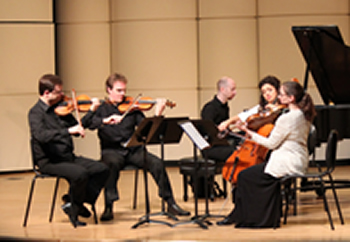Closing in on her 103rd birthday, my mom has lost count of the number of times she has seen Giuseppe Verdi’s La Traviata. But she frequently remembers the first time, because Traviata was the first opera she ever saw at the Metropolitan Opera – and she was so young then that her Bronx elders devoutly believed she wasn’t old enough to know what a courtesan was. It’s still a lovely opera to begin your operagoing with, largely because it begins so wonderfully. From the outset in Violetta Valery’s salon, Verdi pops a risqué cork of Parisian glamor and gaiety, countering this effervescence with an Italian mix of ardor and melody. It’s easy to come away from the amazing Act 1 with the idea that Violetta represents liveliness, sensuality, and sexual freedom while Alfredo Germont, her ardent suitor, represents the purest passion and commitment. After all, the curtain comes down with Violetta striving to sustain her “Sempre libera” pleasure-seeking while Alberto’s voice from offstage is wearing down her resistance with refrains invoking the torment and rapturous power of “amor che palpito” – love that pulsates – throughout the universe.
Yet as we can see in the current Opera Carolina production at Belk Theater, with scenery design by Ercole Sormani that is more resplendent than the company’s previous Trav in 2017, Verdi establishes the soulful compatibility of the lovers by giving Alfredo the rousing “Libiamo” champagne toast that highlights the swank soiree and then gifting Violetta with her knee-buckling “Ah, fors’è lui” love ballad. Each of them is deeply susceptible to the other. With all four of these memorable tunes ganged into the opening act, Melinda Whittington as Violetta and Dominic Armstrong as Alfredo had to hit peak form almost immediately rather than gradually building to their climactic duet. Armstrong arguably had his best moments within minutes of making his first entrance when he lifted his champagne glass, but in the title role, Whittington is called upon to sustain her excellence more intently as we follow Violetta’s poignant sacrifices and decline.
After seeing her as the mother/Soldier in OpCarolina’s The Rising and the Falling last year, I was confident that Whittington could handle the legendary character arc of La dame aux Camèlias (The Lady of the Camelias) with nuanced understanding. Still the quality and depth of Whittington’s vocals took me aback. Not only did this soprano navigate the “Sempre libera” coloratura beautifully – and with seeming ease – as the duet climaxed, she was keenly alive to the weight of the moment. For this one night, Violetta has won the tug-of-war, repelling Alfredo’s overtures. But in sending him away, she has invited him back when the camelia she has given him has withered. Alone before her manic proclamation of living for pleasure, she has realized that she has been captivated for the first time in her life. She has recently been ill; Alfredo came to ask after her every day; she has now ominously collapsed in front of all her guests. Whether she yields to Alfredo or not, plenty of suffering lies ahead. Somehow in the way Whittington supported herself unsteadily as she transitioned into her liveliest aria, she looked and sounded like she was bracing for the sufferings to come – no matter what she decided.
Because she has weighed Violetta’s choice so intelligently in Act 1, the tensions in Whittington’s wavering carried over into the two acts and three scenes that followed, making them less of a letdown that can often lie in wait after Verdi’s brilliant, exhilarating beginning. Although I didn’t feel Armstrong remained in top form at Violetta’s country cottage or at the gaming table until Alfredo lost his temper and disgraced himself, the tenor was achingly penitent, a wonderful devotee and partner for Whittington in the concluding deathbed duets of Act 3. When Armstrong’s energy fell off in the middle act, baritone Hyung Yun compensated strongly as Giorgio Germont, Alfredo’s father. Maybe too strongly at first as he barged in at Violetta’s country home, confronting her as an upstanding disapproving dad. Very soon, as Germont realized that this well-to-do courtesan wasn’t sponging off his son, that her deep love for Alfredo was sincere, and that giving him up would be an excruciating sacrifice, Yun’s sternness dissolved. We heard a softer, sweeter timbre in his voice, which became more and more earnest as he pleaded first with Violetta and, after her departure, with Alfredo.
Possibly stage director Sam Mungo‘s most brilliant stroke was how Germont suddenly entered and rebuked his grandstanding son after he had publicly humiliated Violetta following his gambling triumph. Yun seemed to emerge out of nowhere, so I was as fully stunned as Alfredo. The moment was so powerful that this was the first Traviata among the many I’ve seen that yielded up this afterthought: just why did the respectable Germont happen to show up on the same night as his son at the gaming table at Flora Bervoix’s luxurious home?
Having worked with both Whittington and Armstrong before as conductor on The Rising and the Falling, Emily Jarrell Urbanek was a logical choice for making their Verdi transition as seamless and comfortable as possible. Urbanek has worked with most of the remaining singers before as the company’s director of music preparation. She has also played, as a guest pianist, with the Charlotte Symphony musicians joining her in the orchestra pit, so I suspect her presence was as steadying and reassuring to all of them as it was satisfying for us. Midway through Act 2, my mom asked me if this was how Violetta’s story was always told. No matter how many times you’ve seen La Traviata, this Opera Carolina production made it feel fresh and different.
La Traviata repeats Saturday, April 22 and Sunday, April 23. See our sidebar for details.












